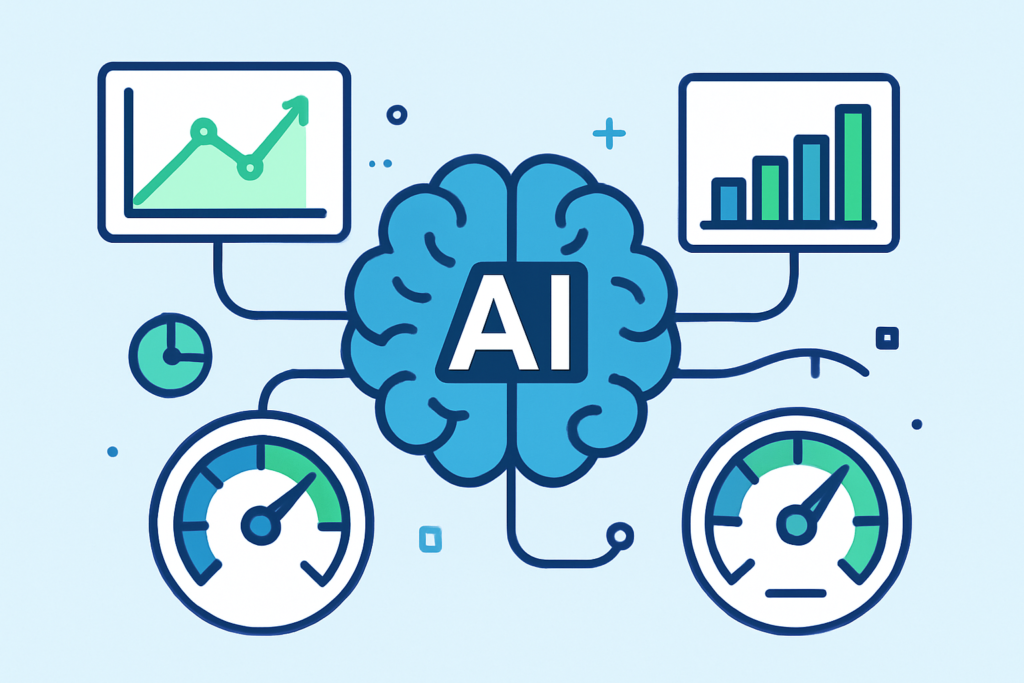
What is Artificial Intelligence? is a question that sparks curiosity in almost every learner today. Artificial Intelligence, often abbreviated as AI, is the science of enabling machines to think and act like humans. It is important because it powers tools we use daily, from voice assistants on our phones to recommendation systems on streaming platforms. For performance testers and engineers, it presents new challenges and opportunities, as AI systems behave differently from traditional applications.
Understanding Artificial Intelligence
Artificial Intelligence means teaching computers to perform tasks that usually need human intelligence. These tasks include understanding language, recognizing images, solving problems, and making decisions. Unlike traditional software that only follows fixed instructions, AI learns from data and improves over time.
Imagine you are teaching a child how to recognize fruits. At first, you show them apples and bananas and explain their differences. Over time, the child learns to identify these fruits even without your help. AI works similarly, except that instead of a child, it is a machine learning from data.
Why is AI important in Performance Testing?
Performance testing checks how well an application behaves under different conditions, such as heavy traffic or slow networks. In the world of Artificial Intelligence, this becomes more complex because AI systems do not always behave in predictable ways. For instance:
- AI models may take longer to respond if they process large amounts of data.
- System performance can vary depending on the quality of training data.
- Testers must measure not just speed but also accuracy, reliability, and fairness.
Think of it like testing a delivery service. In normal software, you only check how many packages the service can deliver per hour. With AI, you also check if the right packages reach the right customers, at the right time, and without bias.
Daily Life Analogy
To connect the idea further, consider how a traffic signal works. A traditional signal follows fixed rules, such as 60 seconds green, 10 seconds yellow, and 30 seconds red. However, an AI-powered signal can adjust its timing by observing traffic flow in real-time. For performance testing, this means you must check not only if the signal changes on time but also if it adapts correctly under sudden traffic surges.
AI in Performance Engineering
Performance engineering goes beyond testing; it involves designing systems that are scalable and reliable from the start. With Artificial Intelligence, performance engineers must think about (and many learners formalize these concepts through an iit ai course):
- Training time: How long does the model take to learn?
- Inference speed: How fast can the AI provide answers once trained?
- Resource usage: Does the AI consume too much memory or CPU?
- Scalability: Can the AI handle millions of users at once?
These aspects make the field of performance engineering more exciting and challenging.
Key Takeaways
Artificial Intelligence is about making machines smart enough to learn, adapt, and solve problems. It is everywhere, from personal assistants to advanced business systems. For performance testers and engineers, AI brings new testing dimensions such as accuracy, fairness, and adaptability. By understanding these, learners can prepare to handle modern challenges in technology.
Reflection Exercise
Think about an AI tool you already use, like a voice assistant or a recommendation system. Ask yourself:
- How would you test its speed, accuracy, and fairness?
- Which performance metrics would matter most for that tool?
This small exercise will help you connect Artificial Intelligence with real-world performance testing challenges.